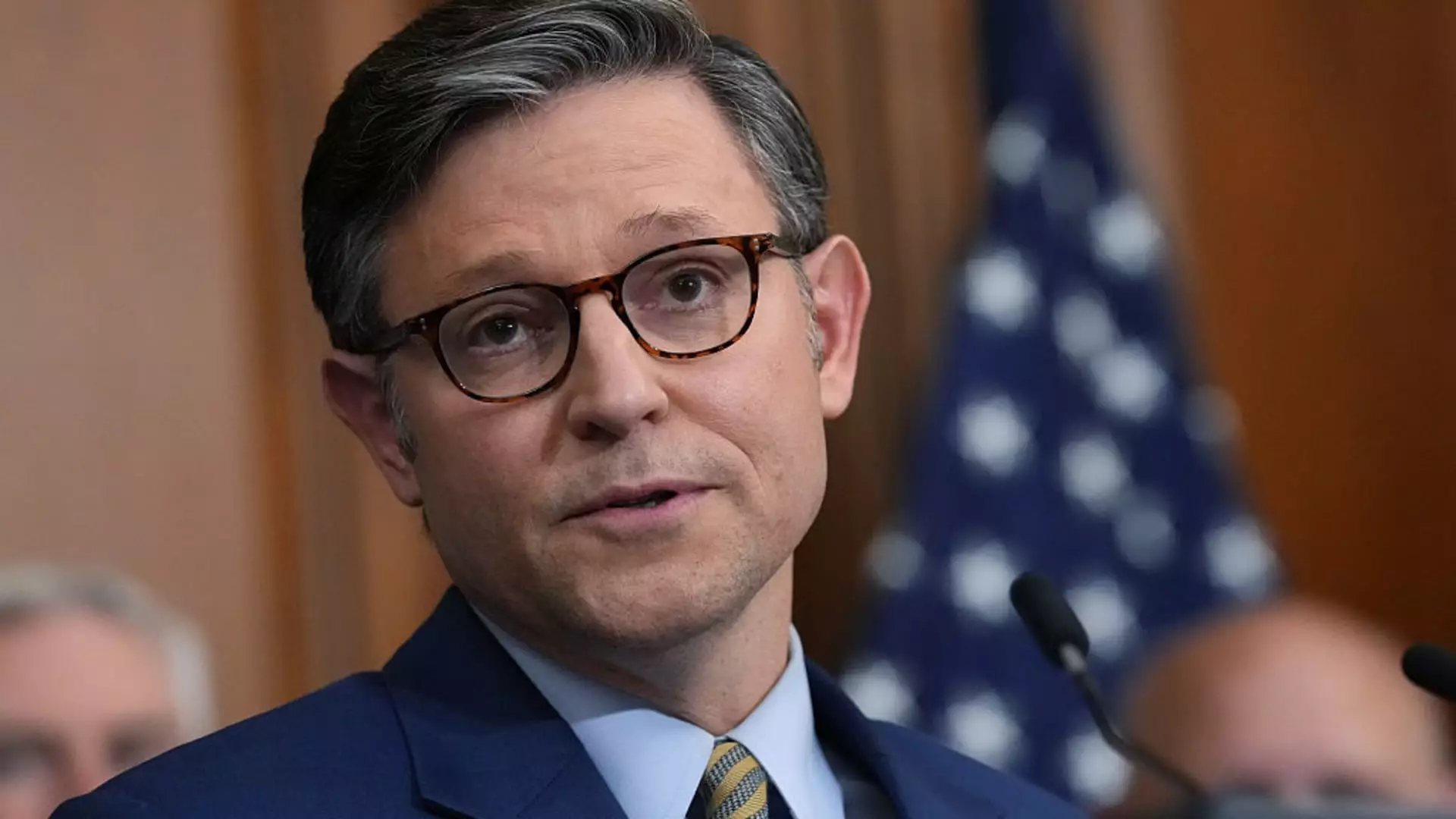In an era marked by increasing economic disparity, the recent remarks from Speaker Mike Johnson concerning Medicaid cuts stir a troubling unease. Johnson’s defense of the House Republicans’ budget bill—a package that imposes stringent work requirements and essentially narrows access for low-income Americans—suggests a disconnection from the lived reality of those most affected. The assertion that “4.8 million people will not lose their Medicaid unless they choose to do so” appears dismissive, devoid of genuine empathy for individuals striving to navigate a complex system fraught with hurdles.
Johnson’s claim that requiring able-bodied candidates to work or volunteer for just 80 hours a month is a reasonable expectation misunderstands the diverse circumstances of millions of Americans. To equate the ability to fulfill such requirements with a lack of effort or desire to contribute is not merely simplistic; it is dangerously reductive.
The Fallacy of “Common Sense” Requirements
The purported “common sense” underpinning these work requirements unveils a fundamental flaw in the ethos of American welfare reform: the conflation of worthiness with work. The framing of work as an unequivocal path to self-sufficiency disregards systemic barriers such as ill health, childcare issues, or even the unavailability of stable jobs in communities disproportionately affected by economic downturns. Johnson’s assertion, which positions the required paperwork and verification processes as minor inconveniences, is deeply problematic. It reveals a troubling lack of awareness regarding the bureaucratic labyrinth many Medicaid recipients must navigate.
Moreover, when Johnson expresses skepticism that the public shares his views, it’s worth asking: Whose voices are being heard in shaping policy? When town halls erupt in discontent toward funding cuts and new paperwork hurdles, it’s less a matter of being too “cumbersome” and more an indictment of failing to listen to the people that the policy impacts most.
The Political Backlash
Johnson and his Republican allies may be surprised at the backlash they have encountered in their districts, but a discerning observer would recognize this as an inevitable consequence of disenfranchising struggling communities. The sharing of personal accounts—such as former Senator Joni Ernst’s grim remarks that “we all are going to die”—reveals the distress faced by constituents. Such comments bypass the significant concerns surrounding access to basic healthcare and cast a pall over the notion of economic support.
Further complicating the political landscape is the resistance from within the Republican Party itself. Senator Josh Hawley’s op-ed presenting the idea that attacking health insurance for the working poor is politically suicidal underscores a fracture within conservative circles. His advocacy for a more compassionate approach to poverty and healthcare suggests an awakening to the fact that the American narrative cannot be one of relentless self-sufficiency devoid of safety nets.
Examining the Consequences
As Democrats like Senator Raphael Warnock articulate, the proposed work reporting requirements risk alienating innumerable vulnerable individuals from essential healthcare services. They expose a jarring truth: the legislation, rather than incentivizing effort, positions bureaucracy as a barrier that could catalyze unparalleled suffering among the poor. Are we truly committed to lifting individuals from poverty, or do we merely fetishize work while criminalizing poverty?
The upcoming deliberation in the Senate represents a pivotal moment. Will lawmakers prioritize political gain or align with a moral imperative to protect the most vulnerable members of society? Johnson’s confident assurances that the bill will survive the congressional process must be meticulously scrutinized. Just because a financial proposition aligns with partisan interests doesn’t make it just or humane.
These Medicaid cuts are not merely numbers on a balance sheet; they represent a betrayal of a foundational belief that a prosperous society must care for its weakest members. The push for austerity disguised as responsible budgeting only deepens societal rifts while undermining the very principle of equitable opportunity—an idea that should resonate regardless of political affiliation. The time has come for a reckoning with these values as we contend with the implications of public policy on real lives.


Leave a Reply